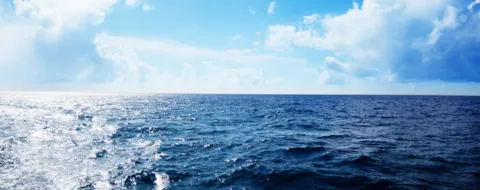Energy island rush accelerates as DNV supports Elia Transmission Belgium on offshore renewable project
Urgent moves to bring forward the construction of “energy islands” – giant new offshore renewable energy conversion and transmission plants – are being supported by a major new safety advisory and assurance study.
DNV, the independent energy expert and assurance provider, is supporting Elia Transmission Belgium as the construction tender for the project, which will receive renewable energy generated offshore, convert it to consumable power and deliver it to Europe opens. Completion of the island is expected mid-2026. From 2026-2027, Elia will start the construction of the electrical infrastructure to connect offshore wind and allow for DC interconnectors.
Denmark recently expedited projects planned for its waters, originally expected to be operational in 2030, further accelerating the decarbonization of energy delivery across the continent while securing domestic electricity supply to reduce dependence on imports from Russia.
Covering an area the size of 10 football fields, some 45km off the coast of Belgium, this energy island can handle enough power to supply 3.5 million homes, and will be connected to the European mainland, the UK and the future Danish North Sea energy island, enabling the distribution of decarbonized energy wherever needed across Europe. This project aims to be an important building block for a European offshore energy grid.
DNV is from the Danish office undertaking independent assessment of the island’s design, providing Elia with guidance on any improvements required to minimize risk throughout its construction and operation through a combination of workshops and continuous assurance reviews.
Prajeev Rasiah, Executive Vice President for Energy Systems, Northern Europe at DNV said: “With this project, offshore wind is entering a new era. Connecting offshore wind farms to transmission hubs such as artificial energy islands will improve electricity flows across Europe and enable the development of large-scale, cost-effective, and sustainable wind production and transmission at sea.
“Using our extensive global offshore experience, we are working to de-risk the project and support the business case for the project with internal and external stakeholders to Elia, including the authorities in Belgium. Key areas of focus are North Sea conditions, environment, geotechnical and hydrodynamic considerations, concrete/steel structure evaluation, marine warranty, electrical power systems and interoperability.
“Thanks to this project, Belgium and wider Europe will have direct access to a large volume of the renewable energy needed to decarbonize its energy-intensive industry, reducing climate impact and providing locally generated renewable energy alternatives to imported fossil fuels.”
Elia’s energy island, which will handle up to 3.5 gigawatts of offshore wind power, will have a seabed footprint of a maximum of 25 hectares and at the surface around 7 hectares in waters about 18 meters deep. It will collect high-voltage AC power electrons from wind farms, transform it partly to 220kv and to DC electricity and then export it to the mainland of Belgium and countries such as Denmark and the UK through subsea cables. It will be the first finished artificial energy island in Europe with hub and spoke facilities and is expected to be joined by other similar projects in the North Sea and Baltics.
.............................................
Part of the Triton Link project
Elia’s Energy Island project is part of a larger project called Triton Link, where the two system operators Elia (Belgium) and Energinet (Denmark) are collaborating on the implementation of an undersea connection between their respective artificial offshore energy islands. The two energy islands will act as transmission centres for hundreds of wind turbines surrounding them and enable the transport and exchange of electricity to the mainland of the two countries. The project is innovative and challenging because of the distance it will cover (more than 600 km of cable) and the advanced technologies involved.
.............................................
About DNV
DNV is the independent expert in risk management and quality assurance, operating in more than 100 countries. Through its broad experience and deep expertise DNV advances safety and sustainable performance, sets industry benchmarks, and inspires and invents solutions.
Whether assessing a new ship design, optimizing the performance of a wind farm, analysing sensor data from a gas pipeline or certifying a food company’s supply chain, DNV enables its customers and their stakeholders to manage technological and regulatory complexity with confidence.
Driven by its purpose, to safeguard life, property, and the environment, DNV helps tackle the challenges and global transformations facing its customers and the world today and is a trusted voice for many of the world’s most successful and forward-thinking companies.
In the energy industry
DNV provides assurance to the entire energy value chain through its advisory, monitoring, verification, and certification services. As the world's leading resource of independent energy experts and technical advisors, the assurance provider helps industries and governments to navigate the many complex, interrelated transitions taking place globally and regionally, in the energy industry. DNV is committed to realizing the goals of the Paris Agreement, and supports customers to transition faster to a deeply decarbonized energy system.
About Elia: The only Belgian transmission system operator (TSO)
Elia Transmission is Belgium’s high-voltage transmission system operator. It has a natural monopoly as Belgium’s only TSO and currently operates over 8,896 km of lines and underground cables throughout the country. It develops, builds, and operates a robust electricity transmission system (both on- and offshore) and is responsible for devising services and mechanisms which support the development of electricity markets at national and European levels.
